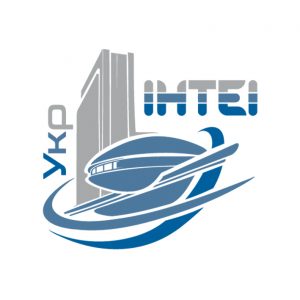http://doi.org/10.35668/2520-6524-2021-4-01
Kuranda T. K. — Head of Departament of State Institution “Ukrainian Institute of Scientific and Technical Expertise and Information”, Antonovycha Str., 180, Kyiv, Ukraine, 03680; +38 (044) 521-00-02; kuranda@uintei.kiev.ua; ORCID: 0000-0002-5913-4113
Kochetkova O. P. — Head of the Sector of State Institution “Ukrainian Institute of Scientific and Technical Expertise and Information”, Antonovycha Str., 180, Kyiv, Ukraine, 03680; +38 (044) 521-00-29; kochetkova@uintei.kiev.ua; ORCID: 0000-0002-8124-911X
STATUS AND PROBLEMS OF FINANCING THE SCIENTIFIC SPHERE AS A RESULT OF MONITORING
Abstract. Scientific research, new knowledge, technological innovations are the main source of economic growth of the state, ensuring its national security, competitiveness and living standards. The development of science in any country is influenced by global trends in knowledge generation, key factors influencing science and technology policy, global trends in research and development spending. Budget funding for science is a key government tool that supports the activities of public sector organizations of science, universities, regulates the development of priority areas of science and innovation. The state of scientific potential, its effectiveness for the country’s economy is determined by the adequacy of funds needed to perform competitive research and development, which are in demand in both domestic and foreign markets. The article considers the global costs of research and development in the United States, leading countries in Europe and Asia, shows trends in their change. The results of comparative assessment of financial costs of the world’s leading countries for research and development are presented. A brief analysis of current trends in the field of research is presented. Based on the results of the monitoring, the current state of indicators of financing of scientific and scientific-technical activity in Ukraine, volumes of budgetary financing of scientific researches and developments on priority directions of development of science and technology are analyzed. It is determined that neither the amount of budget funding nor the structure of expenditures on research and development do not meet the requirements of innovative economic development and building a knowledge-based society.
Keywords: scientific sphere, scientific researches and scientific and technical developments, financial maintenance, the state budget, priority directions of development of science and technology.
REFERENCES
- Sirenko, K. Iu. (2018). Finansuvannia naukovoi ta naukovo-tekhnichnoi diialnosti yak efektyvnyi vazhil pidvyshchennia konkurentospromozhnosti krainy: vitchyznianyi ta zarubizhnyi dosvid [Financing of scientific and scientific-technical activity as an effective lever to increase the country’s competitiveness: domestic and foreign experience]. Pryazovskyi ekonomichnyi visnyk [Priazovsky Economic Bulletin]. 5, 97–102. Retrieved from: http://pev.kpu.zp.ua/journals/2018/5_10_uk/18.pdf. [in Ukr.].
- Hryha, V. Iu. (2019). Zarubizhna praktyka vprovadzhennia «rozumnoi spetsializatsii» ta mozhlyvosti yii zastosuvannia v Ukraini [Foreign practice of the implementation of smart specialization and the opportunities of its use in Ukraine]. Ekonomika prohnozuvannia [Economics of forecasting]. 2, 138–153. https://doi.org/10.15407/eip2019.02.138. [in Ukr.].
- Burdonos, L. I. (2017). Stan finansovoho zabezpechennia rozvytku naukovoi diialnosti v Ukraini [The state of financial support for the development of scientific activity in Ukraine]. Molodyi vchenyi [A young scientist]. 10, 811–814. Retrieved from: http://nbuv.gov.ua/UJRN/molv_2017_10_186. [in Ukr.].
- Holovatiuk, V. M., Pidorycheva, I. Iu. & Soloviov, V. P. (2018). Stratehichni ryzyky naukoiemnoho rozvytku natsionalnoi ekonomiky [Strategic risks for science-intensive development of the national economy]. Nauka ta naukoznavstvo [Science and science of science]. 3, 3–24. https://doi.org/10.15407/sofs2018.03.003. [in Ukr.].
- Ovcharova, L. P., & Bodeko, V. P. (2019). Finansuvannia naukovykh doslidzhen i rozrobok v Ukraini: stan, problemy ta perspektyvy [Financing of research and development in Ukraine: state, problems and prospects]. Suchasni problemy ekonomiky i pidpryiemnytstvo [Modern problems of economy and entrepreneurship]. 24, 76–88. Retrieved from: http://sb-keip.kpi.ua/article/view/185418. [in Ukr.].
- Liashenko, O. M. (2017). Stratehii finansuvannia naukovykh doslidzhen v Ukraini [Research funding strategies in Ukraine]. Stratehichni priorytety [Strategic priorities]. 3, 78–86. Retrieved from: http://nbuv.gov.ua/UJRN/spa_2017_3_12. [in Ukr.].
- Petrushyna, T. O. (2017). Stan nauky v Ukraini (za otsinkamy vitchyznianykh ta zarubizhnykh ekspertiv) [The state of science in Ukraine (according to domestic and foreign experts)]. Visnyk Natsionalnoi akademii nauk Ukrainy [Bulletin of the National Academy of Sciences of Ukraine]. 11, 66–80. Retrieved from: http://nbuv.gov.ua/UJRN/vnanu_2017_11_8. [in Ukr.].
- Cottom, T.M., Darity, Jr. W.A. (Eds.). For-Profit Universities: The Shifting Landscape of Marketized Higher Education. Palgrave Macmillan, 2017. https://doi.org/10.1007/978-3-319-47187-7.
- Bazhal, Yu.M. (2017). Realizatsiia modeli “potriinoi spirali” v innovatsiinii ekosystemi Ukrainy [Implementation of the “triple spiral” model in the innovation ecosystem of Ukraine]. Ekonomika prohnozuvannia [Economics of forecasting]. 3, 124–139. https://doi.org/10.15407/eip2017.03.124. [in Ukr.].
- Khaustova, V. Ye., & Reshetniak, O. I. (2019). Osnovni tendentsii ta problemy rozvytku nauky v Ukraini [The main trends and problems of science development in Ukraine]. Problemy ekonomiky [Problems of the economy]. 2, 62–72. https://doi.org/10.32983/2222-0712-2019-2-62-72. [in Ukr.].
- UNESCO (2021) UNESCO Science Report: the Race Against Time for Smarter Development. S. Schneegans, T. Straza and J. Lewis (Eds). UNESCO Publishing: Paris.
- OECD Main Science and Technology Indicators Highlights on R&D expenditure, March 2021 release 2017. Retrieved from: https://www.oecd.org/sti/msti-highlights-march-2021.pdf.
- Global Research and Development Expenditures: Fact Sheet Updated September 27, 2021. Retrieved from: https://sgp.fas.org/crs/misc/R44283.pdf.
- Main Science and Technology Indicators, Volume 2021 Issue 1. Retrieved from: https://read.oecd-ilibrary.org/science-and-technology/main-science-and-technology-indicators/volume-2021/issue-1_eea67efc-en#page1.
- Loktiev, V. M. (2020). Chy ye shans povernuty prestyzh nauky v Ukraini [Is there a chance to restore the prestige of science in Ukraine?]. Visnyk Natsionalnoi akademii nauk Ukrainy [Bulletin of the National Academy of Sciences of Ukraine]. 9, 12–29. https://doi.org/10.15407/visn2020.09.012. [in Ukr.].
- Rybachuk, V.P., & Ovcharova, L. P. (2021). Derzhavne finansuvannia doslidzhen i rozrobok za priorytetnymy napriamamy rozvytku nauky i tekhniky: natsionalni osoblyvosti [State funding of research and development in priority areas of science and technology: national characteristics]. Nauka ta naukoznavstvo [Science and science of science]. 3, 20–38. Retrieved from: https://sofs.org.ua/wp-content/uploads/2021/10/Naukoznavstvo_2021_No-3_print-20-38.pdf. [in Ukr.].

